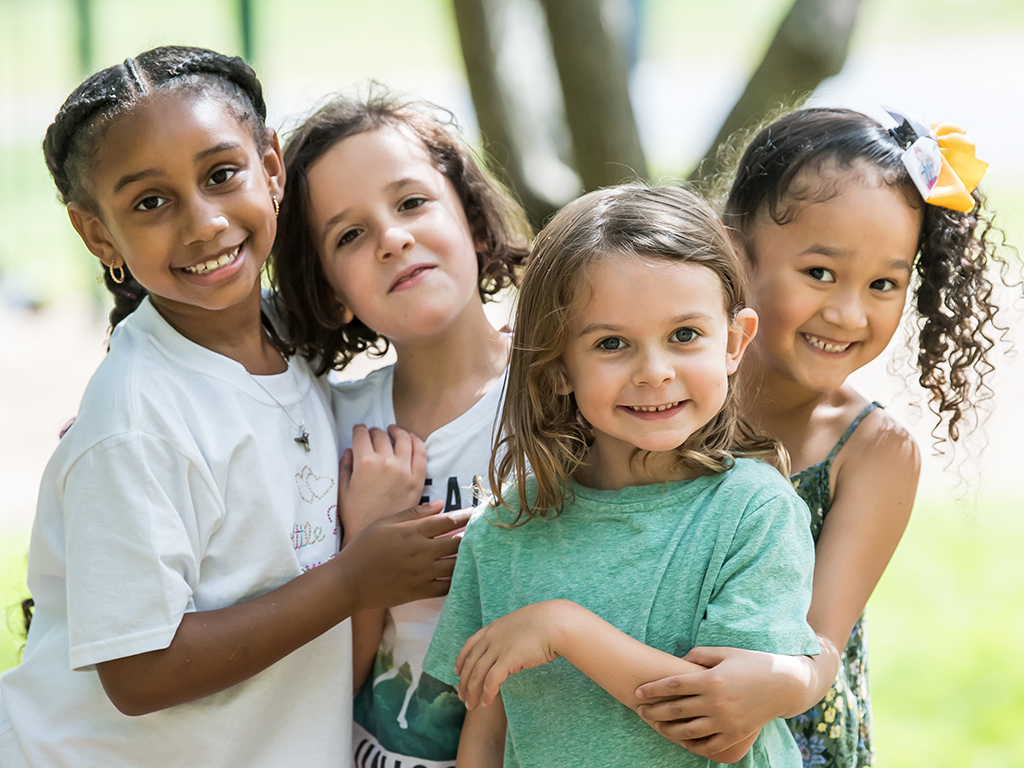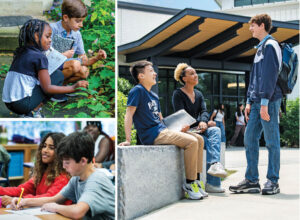A Quaker School With Bold Convictions
What is a Quaker School?
Many private educational institutions are founded on religious principles; their respective doctrines are incorporated into the curriculum and shape the schools’ approach to communication, community, and discipline. A Quaker school is guided by the religious teachings of the Religious Society of Friends, colloquially called Quakers.
The Abington Friends School offers an authentic Quaker education for children aged 3 to grade 12. Critical inquiry is a deeply held Quaker value and informs how we approach teaching and learning at AFS. Our students are encouraged to have bold convictions, to be curious about the world they live in, to ask multi-layered questions, and develop creative solutions to problems.
What Are Our Bold Convictions?
1. To embrace ambition with integrity
2. To seek intellectual adventure
3. To venture farther and wider
4. To follow curiosity wherever it leads
5. To understand more deeply
6. To find joy in the work of learning
7. To be a force for justice
8. To recognize the power of diversity
9. To build a sturdy sense of self
10. To find the good in ourselves and others
What are the Principles That Guide Quaker Education?
As a Quaker (or Friends) school, Abington Friends School incorporates the Quaker testimonies of simplicity, peace, integrity, community, equality, and stewardship into the daily life and education of our students. In addition to these testimonies, AFS honors the value that Quakers place on social justice, social action, and reflective practices.
So what exactly do these testimonies mean? These six principles can be broken down into these simple ideas:
• Integrity: We believe in doing what is right in every circumstance and holding ourselves to a high standard of accountability.
• Stewardship: The gifts we have must be carefully nurtured and used wisely.
• Simplicity: Life is complicated, but focusing on the essentials through silent reflection can help us understand what is truly important.
• Equality: Every person is deserving of respect, and differing viewpoints are an opportunity to learn, grow, and change.
• Peace: The community flourishes when conflicts are resolved peacefully.
• Community: Collaboration and mutual respect are crucial to supporting a vibrant community.
Whenever appropriate, we also practice Quaker decision-making. Through clerked meetings, the use of silence and reflection queries based on community welfare, and the creation of spaces that allow everyone’s voice to be heard, we try to make decisions that represent the whole community.
Who Can Attend a Quaker School?
Anyone is welcome to attend a Friends School. We have many students who are not of the Quaker faith but share our values, goals, and mission.
When Did Quaker Education Begin?
The first Friends School was founded in the late 1600s as a way to educate Quaker children separate from the Anglican, and Catholic religious influences often found in English schools at the time. These schools focused on biblical study and scientific learning, with an emphasis on nature. As more schools were established and educational centers spread beyond England, other subjects were added to the curriculum, including music, art, and theater.
Early Quaker schools were mostly an extension of Friends Meetings, which is where members gather for worship. Many schools became separate entities throughout the centuries, although some, including Abington Friends School, still gather for Meeting. In fact, all students in each division hold a weekly Meeting for Worship, which serves as a time for community members to be still, listen, reflect, and share their thoughts with others.
How Does the Quaker Approach to Education Differ From Other Schools?
Guided as we are by Quaker principles, our approach to education isn’t solely academic. One of the core beliefs of the Religious Society of Friends is that every person, regardless of age, creed, gender, economic status, or social position, has the Light of the Divine. We aim to nurture that Light and teach students how to use their gifts to grow that Light in others.
Every child has remarkable potential with a capacity to change the world if they are given the opportunity to explore, reflect and be inspired. While many schools are fixated on test scores, we believe that helping children discover their talents and strengths is essential to a successful education. At AFS, we seek deep understanding and welcome the diversity of perspective that allows each member of our community to feel seen, heard and valued.
How Do You Know If a Quaker Education is Right for Your Child?
Families looking for a meaningful education for their child — one that embraces bold convictions, has an ambitious curriculum, and provides opportunities for powerful experiential learning — will find a good fit at Abington Friends School. If you want your child to boldly follow their curiosity wherever it leads, then you will find an enriching and welcoming community here at AFS.


